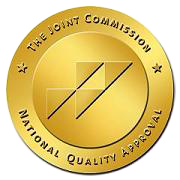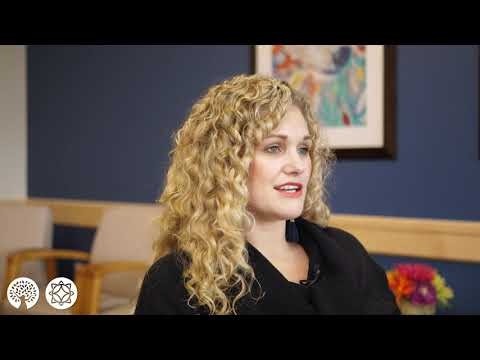
What to Expect
Life can be unpredictable. Behavioral health disorders like mood, anxiety, and trauma-related disorders, and eating disorders seriously affect people’s lives every single day. If you are facing a crisis, we are here for you. Our treatment programs for adults and adolescents offer you a safe place to go if you are looking for effective mental health treatment.
With the guidance and support of the treatment team, you can learn how to confidently create a life you love. In our secure treatment environment, you can learn the skills you need to cope with life’s many stresses. We are here to help you change your thought patterns and better manage your health.

It's Never too Late to Get Help
Our clinicians provide a vast network of support and a wealth of expertise to help you thrive. We offer assessment and intervention for a wide variety of mental health issues, including:
- Depressive Disorders, including Major Depressive Disorder
- Anxiety Disorders (including generalized, obsessive-compulsive, panic)
- Bipolar Disorder
- Post-Traumatic Stress Disorder and trauma-related disorders (including childhood and adult sexual, physical and emotional abuse)
- Anorexia Nervosa
- Bulimia Nervosa
- ARFID
- Eating Disorders
- Binge Eating Disorder
Our treatment team is also equipped to address co-occurring mental health conditions, including substance abuse.
Individualized, Evidence-Based Eating Disorder Treatment
We provide specialized treatment for mental health issues in locations across the country. As a Joint Commission-accredited facility, our evidence-based treatment approaches are recognized as meeting or exceeding rigorous standards regarding healthcare quality, value and optimal outcomes.
A Place for Everyone
Whether you come to Pathlight for our Residential, Partial Hospitalization, or Intensive Outpatient programs, our clinicians and staff will be here to walk side by side with you through the entire process. We are committed to providing you with the best care so that you can recover from your unique situation.
Our multidisciplinary treatment team and caring staff members will support you in developing a plan of action to address your unique psychological, social and medical needs both during and after treatment. We can coordinate and communicate with therapists and psychiatrists in your home community to ensure continuity of care.
Family involvement is key to a lasting recovery. We provide education and support to family members and loved ones while you are in treatment. Family therapy is also an integral part of our program — should you choose to participate.
Care from Expert Staff and Clinicians
Our staff and clinicians are leaders in the field of behavioral health, offering teaching, training, research and advocacy opportunities locally and around the nation. We work closely with — and offer many training opportunities for — the nation’s top doctors and clinicians.
Leadership and staff members also work to promote mental health awareness by serving as advocates in the field and by participating in many professional organizations and community events.
Get matched with the exact support you need.
With one conversation, our mental health professionals will help you better understand what you’re going through and what you need.
We will meet you where you are, listen to your story in a therapeutic setting, and match you with the level of support that meets your struggle.

Your First Day in Treatment
Recovery from an eating disorder or other mental health condition is within your reach now — and you are incredibly brave to be starting treatment.
When you arrive for your first day, you may feel absolutely overwhelmed. Please know that it is normal to feel this way, as you are taking a very big step into the unknown!
Arriving at the Treatment Center
Typically, you will arrive for your first day of treatment in the morning. When you arrive, we will greet you and ease you into treatment. You will meet with a number of key people on your first day, including the following:
- A nurse for a physical assessment and labs
- A medical doctor for a medical assessment and to review any complications, issues or specific needs
- Your treatment team (psychiatrist, therapist and dietitian for eating disorders programs)
- A business office representative to discuss insurance benefits, payment and other details
Our staff will also show you around our facilities on your first day, offering you a tour, so that you can feel more comfortable and know where things are. We will help you and make sure that you get all of the information you need.
If you feel like you can’t take in everything all at once on your first day, we understand. As the first days go by, you will begin to develop a routine and will have opportunities to ask us any questions that you may have. Also, please be aware that intake processes and procedures do vary by location.
Meeting with Your Treatment Team
When it comes to your treatment team, we do our best to match you with providers that are the best fit for you. Every patient has different needs and goals, and we are proud to have a diverse group of clinicians and staff — with different strengths and areas of expertise at each of our recovery centers.
During your first meeting with your treatment team, we will start to develop a working relationship with you and will review your goals. This is a great time for you to ask us any questions that you have.

Your First Meal in Treatment: Eating Disorders Programs
On your first day, you will have lunch with some of our staff members and other patients. Following this meal, you will meet with your dietitian to discuss meal planning and to select your menu plans for the week.
We know how challenging this part of treatment can be, but mealtimes and meal planning are some of the most important aspects of eating disorder treatment. We will support you the entire time you are with us and you will have many opportunities to process both positive and negative experiences in individual and group therapy. We want, and expect, you to take an active role in your care.
Meeting Others at the Treatment Center
You may wonder about the types of people that you will be in care with. We are proud to serve a diverse population of patients and believe that therapeutic growth deepens when you encounter and develop relationships with people from different life experiences and backgrounds.
We see benefits to mixing age groups together, although adults (18 and up) are housed in separate areas from our child and adolescent patients (ages 8 to 18). Adults of all ages room together and share meals and therapeutic groups.
Males and females also work together in therapeutic groups and eat together, although they do room separately. Some of our centers offer groups specifically for males with eating disorders.
We take each room request individually, depending on our availability and your preference. Our Partial Hospitalization apartments will require you to have a roommate and some of our housing options are supervised.
How Long Treatment Lasts
You are a unique person and will have your own individual response to treatment. Thus, there is no way to know in advance how long you will be here with us in treatment. Having said that, the average length of stay is six to eight weeks. Of course, you could be with us for a shorter or longer amount of time. Your length of stay at our treatment center depends on a number of factors. At times, it could even depend on insurance benefits or other financial issues.
We will work closely with you, each day, to assess your situation and make the most responsible, ethical and honest treatment recommendations — honing in on the best level of care for you at each stage. No matter what happens, we will do our best to prepare you for success at each level of care to help you get on your best path to a sustainable recovery.
Let Us Know What You Need
We are honored that you have put your faith and trust in us and we promise to be right by your side, supporting you, on your first day — and every day while you are here in treatment.
A note about our program: We’d like to point out that this article discusses what to expect in our 24-hour residential care program. Your experience in other levels of care, including partial hospitalization, intensive outpatient and outpatient will differ. In addition, we have a number of centers in locations across the country. Therapy offerings and other details will differ by location. Let us know if you have any additional questions about what to expect when you arrive for treatment at ERC or Pathlight.
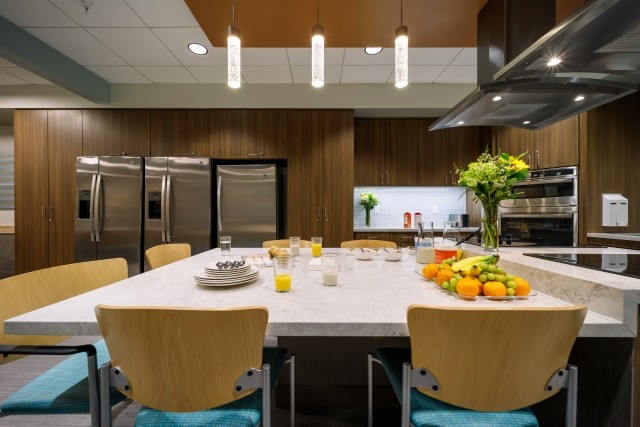
Meal Planning & Food Choices
In eating disorder treatment, your meals will play a crucial role in your recovery. Working with us in this area may challenge you — and it may challenge your eating disorder as well.
We know how difficult this aspect of treatment can be. We also know that it is possible to achieve a full and lasting recovery by approaching food in a more balanced way. Have faith that the framework we use here will support you in recovery, and that it will also help you learn and practice healthier behaviors.
Choosing Meals in Treatment
Each week, you will select a week’s worth of meals (breakfast, lunch and dinner options) based on the meal plan that is prescribed for you by your registered dietitian.
When planning meals in eating disorder treatment, we use an exchange system that is generally based on the American Diabetic Association standards. This helps decrease the focus on calories (which we won’t be talking about here at ERC), allows for flexibility and helps to ensure that your nutritional needs are met. You will be able to adjust your menus when any meal plan changes are made.
If you have any questions about meal planning and what foods to select, know that your dietitian will be here to support you and answer your questions. When you arrive, we will explain this process to you in greater detail.
Dining with Peers at ERC
Depending on your individual needs, you will have three meals and one to three snacks per day. During meals, you will be able to chat with peers and will have an opportunity to participate in light table games (trivia, etc.). Staff members will also join you at your table to help provide support and structure during meals.
Your food will be plated for you when you arrive at meals based on the menus that you have selected and according to your dietitian’s recommendations. As you progress in your recovery, you may have the opportunity to incorporate buffet-style dining during mealtimes to practice portioning. Over time, you may also participate in restaurant outings and cooking groups.

Consuming Fluids
We want to make sure that you are getting enough fluids daily. Water will be provided during meals and snacks. If we notice that you are not drinking enough fluids or are not getting adequately hydrated throughout the day, we will work with you to increase fluid intake. Since some people with eating disorders may struggle with consuming too many fluids, we will work with you to limit fluid intake to an appropriate level, if that is a concern. In lower levels of care, you will have access to drinking water throughout the day.
Nutrition Services at Eating Recovery Center
Nutrition plays a fundamental role in eating disorder treatment. Patients’ thoughts and behaviors around food are generally negative and destructive, and many individuals need to restore weight in order to restore the clarity of mind necessary to fully engage in therapeutic interventions. Even for those patients who are at a normal weight at the time of admission, nutrition exposure and education is critical in addressing issues related to their underlying relationship with food.
The nutrition philosophy at Eating Recovery Center of Denver emphasizes helping patients overcome their fear of food and eating by providing support and structure during meals, education on a balanced pattern of nutrition and collaborative care to achieve a healthy weight for optimal recovery. More specifically, the nutrition philosophy communicates that there are no good and bad foods and emphasizes balance, moderation and variety.
Eating Recovery Center of Denver’s team of highly skilled Registered Dietitians work individually with patients at all levels of care to develop a personalized meal plan to achieve weight restoration or maintenance goals, as well as meet any verifiable dietary needs. Dietitians also work collaboratively with the treatment team, participating in daily meetings to support an integrated understanding of each patient’s progress and treatment goals.
In addition to individual nutrition counseling, Eating Recovery Center of Denver’s Registered Dietitians lead group education sessions and oversee various exposure activities to deconstruct myths around food and offer opportunities to build confidence in food situations. Cooking classes, buffet-style meals, grocery shopping groups and restaurant outings are integrated into idividual treatments plans and allow patients who are further along in recovery to develop the skills necessary to prepare them for success in real-life situations outside of eating disorder treatment.
Another unique aspect of Eating Recovery Center of Denver’s nutritional approach is that our expert staff of Registered Dietitians, primary clinicians, and family clinicians regularly dine with patients. Because meal times are often stressful and anxiety-provoking for individuals with eating disorders, staff at Eating Recovery Center of Denver provide structure and support in order to create a therapeutic meal environment. Staff supervision at meals helps provide the encouragement, redirection of eating disordered behaviors, and role modeling necessary to affect behavior change.
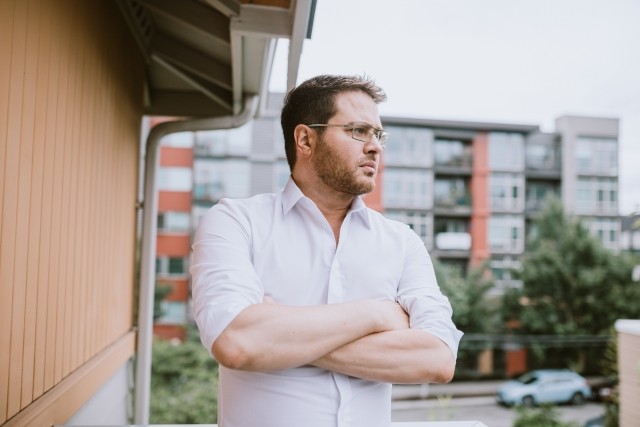
Dealing with Challenges
Physical and emotional challenges can occur when you adopt healthier eating behaviors in recovery. The carefully controlled, supportive environment here at Eating Recovery Center can help your recovery in the following ways:
- If you have been significantly restricting food, we will work on increasing intake gradually at a safe and steady rate while monitoring your lab values and fluid balance.
- To minimize discomfort (stomach pain, constipation, etc.) as your digestive system adapts to regular eating, your dietitian will be working closely with the medical team and will monitor the volume and contents of your meal plan.
- You will have support in learning healthy coping skills to help you manage the anxiety and emotions that arise as you work on reintroducing foods and increasing variety.
Accommodating Special Requests
Here at Eating Recovery Center, we take food allergies very seriously. If you have a food allergy, we will ask you to provide documentation of scientifically-proven food allergy testing that you have had before we can accommodate your requests. We may also recommend further food allergy testing during treatment, if needed.
When you first come in for treatment and meet with your dietitian, they will be able to assess any special dietary requests (vegetarian, gluten-free, etc) on a case-by-case basis. We may be able to make some accommodations for religious dietary practices, such as providing Kosher meats for individuals following a Kosher diet.
We believe that there are no “good” foods or “bad” foods. Overall, we want you to be exposed to a variety of foods. We hope that you come to understand that all foods are okay in moderation. Our goal is to assess your needs from a nutritional standpoint, reviewing each meal plan on an individual basis to help promote recovery.
Moving Forward in Recovery
This process as outlined above may seem really hard at first and it may also be difficult to understand why we do things a certain way. We hope you understand that each day we are doing our best to help you:
- Establish a healthier eating pattern and routine
- Develop a healthy relationship with food and feel comfortable eating in social situations
- Eat appropriately and adequately nourish yourself
Nutrition rehabilitation can be one of the hardest and most important pieces when in recovery at an eating disorder treatment center. By approaching meals in a balanced way, you will be able to achieve full recovery from your eating disorder. To help you reach this goal, we will work with you, by your side, each and every day.
A note about our program: We’d like to point out that this article discusses what to expect in our 24-hour residential care program. Your experience in other levels of care, including partial hospitalization, intensive outpatient and outpatient will differ. In addition, we have a number of centers in locations across the country. Therapy offerings and other details will differ by location. Let us know if you have any additional questions about what to expect when you arrive for treatment at ERC.
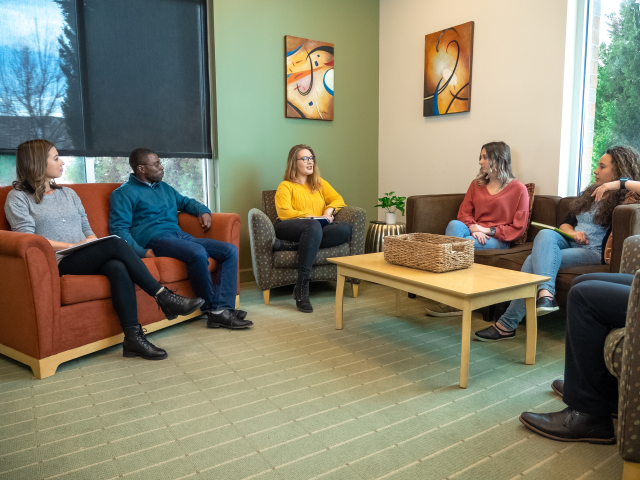
Mealtime Support
For many people with eating disorders, it can be difficult and even scary to eat regular meals. Eating is often seen as something to be avoided. At Eating Recovery Center, one of our goals is to support you in managing your anxiety around food and to help you be able to eat despite of any fears you might have.
In eating disorder treatment, the path to successful recovery requires addressing two major areas:
- Behavior change related to food, exercise, and/or weight
- Psychological and emotional issues
Seeing food as medicine
Nourishing your body will be critical to your recovery. To achieve this, you will create a personal meal plan with your dietitian. Your nutrition plan will feature balanced meals and snacks composed of different food groups.
We serve six meals and snacks daily. This amount of food can lead many patients to feel uncomfortably full, particularly if they have been restricting or not keeping food in for quite some time.
While it can be hard to eat this much in treatment, it is vitally important that you complete your meals and work towards proper nutrition and, if you are underweight, full weight restoration.
You may need time to adjust physically and emotionally to your meal plan, and we understand that. If you are unable to finish your meals or snacks, we will offer you supplements after meals. This is challenging and your doctors and therapists will be working with you and supporting you throughout each step in this process.
Setting the environment
Meals are a crucial part of your therapy here. We have designed our dining areas to be as pleasant and welcoming as possible. During meals, you will dine with fellow patients and staff members, including nursing staff, therapists and dietitians. Conversation and table games (word games, trivia, etc.) will be shared to lighten the mood and make mealtimes more enjoyable.
Supporting You Through Challenges
In addition to supporting you during mealtimes, we provide support after meals through group therapy. In group therapy you will have opportunities to:
- Connect to your values
- Set intentions for the day
- Process thoughts, feelings, and experiences that come up during meals
- Reflect on the day’s successes and struggles
- Support your peers and also receive support from them
For the first hour after meals and snacks, we will ask you to either refrain from using the bathroom or allow us to supervise you in the bathroom. Direct supervision in the bathroom might extend beyond the one-hour post-meal point if you have a history of purging (symptoms of bulimia) or need extra support in the bathroom for any reason.
As you make progress in treatment, you may start to practice snacks or meals off the unit, usually with staff at first, and then with peers or family, or even on your own.
Moving toward recovery
Many of our patients come to our eating disorder treatment center with high levels of anxiety about food, and for many, eating may bring up lots of difficult feelings. Please know that we will be here to support you, to help you move in the direction of health and well-being despite those difficult emotions, and to help you move forward toward recovery.
A note about our program: We’d like to point out that this article discusses what to expect in our 24-hour residential care program. Your experience in other levels of care, including partial hospitalization, intensive outpatient and outpatient will differ. In addition, we have a number of centers in locations across the country. Therapy offerings and other details will differ by location. Let us know if you have any additional questions about what to expect when you arrive for treatment at ERC.

Tough Days: Facing Challenges in Treatment
When you take that first step and walk through the doors of our treatment center you may feel a number of emotions. You may worry if you made the right choice, wonder if you are "sick enough" to be here or even feel like you don't belong. You may even feel a huge sense of relief, finally allowing yourself to slow down and rest.
Eating disorder behaviors often begin as a way to solve a problem — and then the eating disorder becomes a problem. In treatment, your other problems, that the eating disorder was trying to solve, come along with you and your eating disorder — right through our doors.
Many of our patients find it very challenging to take in food without getting rid of it or exercising it away; it can even feel torturous! Your body isn't used to this kind of discomfort.
During this period of time — as your food intake starts to stabilize — all those thoughts, feelings and worries that your eating disorder had subdued may come pouring out. Many of our patients tell us at this time, "I should be feeling better, not worse!" This phase can be overwhelming, unpleasant and disappointing.
We want you to know that this is all OK. This is normal. It’s OK to struggle in eating disorder treatment. It’s OK to not know how you are going to get through this. Know that this initial distress is temporary and that you have a life worth living for. Stay committed to this work as we do our best to support you and help you recover.
Coping with Emotional Pain
Healing from an eating disorder requires intense therapeutic work. This work can bring up a lot of pain and stir up a lot of negative emotions. This work may even feel impossible at times, as sadness, grief, loss or anger become overwhelming.
With the help of Acceptance and Commitment Therapy (ACT) and other therapies that we offer, you will learn that it is OK to have difficult and painful thoughts, feelings and emotions. In therapy, you will identify what you value, learn to use your body to assess these things and let these values guide you each and every day so you can stay active and engaged in life.
In therapy, we will invite you to sit with your pain — in a safe place, and with support from professionals and peers. As you get used to feeling pain, you will become better equipped at dealing with all of the various hardships that come up in life. You will learn that you don’t have to get rid of discomfort and pain. In fact, you can take that pain with you and use it to help you take action towards your values.
As you orient towards what you value, towards a meaningful life and doing the incredibly hard work of being in your body and having a healthy relationship with it, it becomes easier to be courageous at facing this pain.
“It's not just an eating disorder… there is something underlying there that is causing you to engage in those behaviors, and you have to get to the meat of it.”
Facing the Toughest Days
Until now, your eating disorder has effectively cut you off from — and provided relief from —emotional and physical pain. And now, as you eliminate eating disorder behaviors from your life, you are probably feeling worse.
Here is the hard truth: you are going to feel worse initially because those difficult feelings and experiences that you have avoided for so long are rising to the surface. You will not fully recover without experiencing this emotional and physical pain.
The positive side of letting yourself feel all of these things is that you get to feel the good stuff, too.
Satisfaction, connection, joy, peace and love may also find their way back into your body and your soul.
Our bodies can do miraculous things while healing.
“It’s cliché, but your best day in recovery really is better than your worst day in your illness.”
Managing Physical Discomfort
Physical pain may also be part of your experience here at ERC, particularly if you have been severely restricting your food intake. For example, when you go through the refeeding process, particularly if your system is not used to being filled up with food, you may experience physical discomfort, constipation or diarrhea. As your system gets used to eating again, it can take time to get used to the feeling of being physically full. Bloating, cheek swelling and edema may occur as you refeed. This can be scary but we will be by your side, educating you on what is happening each day and ensuring your health and safety.
When you stop behaviors like checking your weight frequently, exercising excessively, binging and purging (symptoms of bulimia), you may feel uncomfortable and feel a significant increase in anxiety. Please remember that this is temporary, normal and necessary as you work towards recovery. Remember, eating disorder behaviors have been your solution to avoiding pain in your life.
Yes, feeling physical and emotional discomfort like this is challenging and overwhelming, but it does get better. This may be the hardest work of your life, but every time you are successful in facing your challenges, you are getting stronger.
“It takes time, but that time is worth it. I never thought I would say that.”
Making the Commitment
If you feel that you must leave the eating disorder clinic, we invite you to talk to your treatment team about your concerns so that we can help you find ways to overcome them. Our primary goal is to make sure that you are stable before you end treatment.
You may want to leave treatment before we think you are ready. If this situation occurs, we will do our best to communicate openly and understand your concerns. And, we will also ask you to spend a few more days at our eating disorder treatment center before you leave. Here’s why: the vast majority of people who commit to these extra days of care end up staying to complete their course of treatment. Many are grateful that they persisted throughout their hardest days.
Starting treatment and achieving full recovery is not a straight line. You may be in treatment more than once. It may even take many years. That’s OK. You are making progress each and every day. We believe in you; we are here for you and we hope that you will continue to do the hard work necessary for recovery — in spite of any hardships that you face.
I tell everybody, you don't have a choice to be sick, but you have a choice to recover.
Supporting You Through it all
We all have painful feelings from time to time. But pain is usually a temporary thing.
If you talk to our past patients, the vast majority will tell you how hard this work is. They will also tell you to stay in treatment. They will encourage you and tell you to believe in yourself, that you can do this. They will tell you to keep going. And they will tell you that recovery is possible.
You have our utmost respect for coming here and for fighting for your life. Here at Eating Recovery Center, we believe that it’s OK to have a bad day. And when you do, we will validate your feelings, encourage you through the tough times and support you through it all.
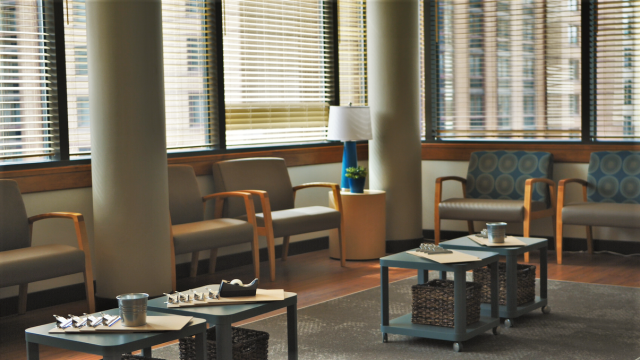
Life After Treatment
Individualized Aftercare Plans
Often times, the hardest work begins when treatment ends. Out programming is designed with life after treatment in mind.
The step-down model of care — which includes Inpatient, Residential, Partial Hospitalization, Intensive Outpatient programs — emphasizes learning, practicing and building confidence in your recovery skills in a structured, supportive environment before stepping down to a level of care with more autonomy and less supervision.
Individual, family and group therapy offers support and education to help prepare you for the potential challenges after treatment and helps you identify personal and recovery-focused goals.
Post-Treatment Planning
Recovery-focused post-treatment planning is also vital to continued recovery. The treatment team works closely with Aftercare Coordinators to develop an individualized aftercare plan that acknowledges your specific recovery needs and challenges. The sole focus of Aftercare Coordinators is to facilitate a seamless return home and ensure continuity of care. Aftercare Coordinators participate in daily treatment team meetings for clarification of what kind of treatment patients may need at home, remain up to date on the patient discharge timetable.
Transitioning to Outpatient Care
If you plan to return to your previous treatment providers after you leave our treatment center, the Aftercare Coordinator will make post-discharge appointments on your behalf, and will ensure that those providers have full information regarding your treatment at Eating Recovery Center as well as your discharge plan.
Aftercare Coordinators can also assemble new or bolster existing outpatient treatment teams from a national network of trusted clinicians that have familiarity with ours recovery approach.
Communication After Treatment Ends
Follow-ups are conducted with each patient within one week of discharge to see if the discharge plan is working, at which time the Aftercare Coordinator can help make necessary adjustments to meet your recovery needs.
In addition to your post-discharge “plan of action,” our aftercare planning also involves maintaining and nurturing connections with others through ongoing support and programming for alumni. Support groups, events, retreats and ongoing communications help maintain and rejuvenate recovery.
Family Days Programming
Additionally, we your family the opportunity to attend Family Days free of cost as many times as they need to educate themselves on how to support you in your recovery.
Hide Last Child Layout Div

